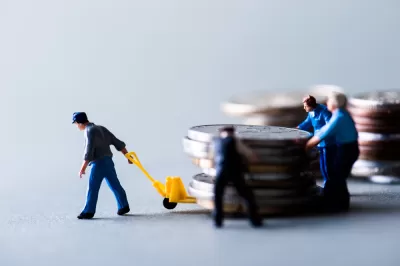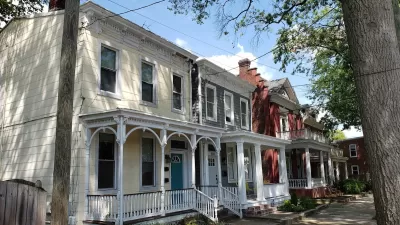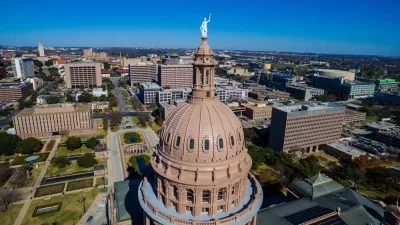Property taxes have traditionally been viewed as recession-proof channels for local revenue, but first the Great Recession, and now the pandemic depression, are proving to be exceptions to the rule.

"Cities and counties are predicting a drop in their property tax revenues over the next year, a phenomenon that’s rare in recessions and never in the modern era has it occurred so quickly," reports Liz Farmer.
"Among counties, 27% reported reduced property tax collections through the first half of this year and even more — 43% — expect shortages to surface over the next year, according to a National Association of Counties survey."
Farmer also pulls data from the National League of Cities report released last week, which expects property tax revenues to decline over the next two years.
Together: "These expected declines are contributing to what is expected to be a $202 billion impact to county budgets and a $360 billion impact to city budgets over the next three years," reports Farmer.
Farmer adds some perspective for the dire government revenue news: property tax revenue declines are rare in the history of recessions. "That’s mainly because municipalities reassess properties every few years and if the local real estate market heads south, it takes a few years to show up in assessed values, if at all. That lag gives municipalities a chance to raise property tax rates up and keep revenue relatively flat on a lower total property base."
While property taxes have been considered, in the past, recession-proof forms of government revenue, the Great Recession, with its waves of foreclosures, proved an exception to the rule.
Another reason for surprise is that all reports are that housing prices are mostly rising during the pandemic, as buyers rush to move to take advantage of low interest rates, or to take advantage of new flexibility in working from home. But that same activity in the residential market is balanced by uncertainty in commercial markets, as companies respond to the same economic dynamics.
FULL STORY: No Foreclosure Crisis In Sight But Property Tax Revenues Still Falling

Alabama: Trump Terminates Settlements for Black Communities Harmed By Raw Sewage
Trump deemed the landmark civil rights agreement “illegal DEI and environmental justice policy.”

Study: Maui’s Plan to Convert Vacation Rentals to Long-Term Housing Could Cause Nearly $1 Billion Economic Loss
The plan would reduce visitor accommodation by 25% resulting in 1,900 jobs lost.

Why Should We Subsidize Public Transportation?
Many public transit agencies face financial stress due to rising costs, declining fare revenue, and declining subsidies. Transit advocates must provide a strong business case for increasing public transit funding.

Paris Bike Boom Leads to Steep Drop in Air Pollution
The French city’s air quality has improved dramatically in the past 20 years, coinciding with a growth in cycling.

Why Housing Costs More to Build in California Than in Texas
Hard costs like labor and materials combined with ‘soft’ costs such as permitting make building in the San Francisco Bay Area almost three times as costly as in Texas cities.

San Diego County Sees a Rise in Urban Coyotes
San Diego County experiences a rise in urban coyotes, as sightings become prevalent throughout its urban neighbourhoods and surrounding areas.
Urban Design for Planners 1: Software Tools
This six-course series explores essential urban design concepts using open source software and equips planners with the tools they need to participate fully in the urban design process.
Planning for Universal Design
Learn the tools for implementing Universal Design in planning regulations.
Smith Gee Studio
Alamo Area Metropolitan Planning Organization
City of Santa Clarita
Institute for Housing and Urban Development Studies (IHS)
City of Grandview
Harvard GSD Executive Education
Toledo-Lucas County Plan Commissions
Salt Lake City
NYU Wagner Graduate School of Public Service





























